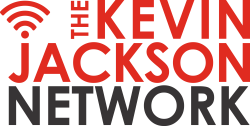
Stealing the Spotlight: How to Claim Your Main Character Moment
Life has a sneaky way of casting us as the quirky best friend, the loyal sidekick, or—let’s be honest—the NPC (non-player character) in someone else’s epic tale. We nod along, play our parts, and wait for the director to yell, “Cut!” so we can finally step into the spotlight. But here’s the truth: there’s no director.
The script is yours to write. And the sooner you realize it, the sooner you experience what DORK (Department of Random Knowledge) calls the Main Character Moment—that electric instant when you stop playing second fiddle and start running your own show.
This article, inspired by the latest DORK radio show episode (show hasn’t actually aired as of this writing), dives into the whimsical, provocative, and uniquely humorous journey of self-empowerment. We’ll explore how to recognize when you’re stuck in Sidekick Syndrome, identify the plot twist that wakes you up, build your own montage of growth, and write a happy ending that’s authentically yours. Buckle up—it’s time to steal the spotlight.
The Sidekick Syndrome: When You’re Not the Star
Let’s set the scene. You’re living your life, maybe even thriving on paper, but something feels off. You’re the one fixing everyone’s problems, cheering from the sidelines, or biting your tongue to keep the peace. Sound familiar? Welcome to Sidekick Syndrome, where you’re cast as the comic relief in a story that’s supposed to be yours.
I fell into this trap in my early 20s. I was a glorified coffee-fetcher at a job I loathed, nodding along to my boss’s terrible ideas while my own dreams gathered dust. My Main Character Moment came when I accidentally spilled coffee on his “inspirational” poster (you know, the one with a cat clinging to a branch). As I scrubbed the stain, I realized I was done cleaning up other people’s messes—literally and figuratively.
The Sidekick Syndrome thrives on external validation. Society loves telling us to “stay humble” or “wait our turn,” especially for those of us conditioned to prioritize others—women, minorities, or anyone who’s ever been told they’re “too much.” But here’s the contrarian twist DORK loves: you don’t need permission to be the star.
Take Carla, a listener who shared her story. She spent years as the “reliable coworker,” fixing everyone’s mistakes. One day, she overheard her boss take credit for her idea. Instead of shrugging, she stormed his office, pitched her next big project, and landed a promotion. Her Main Character Moment wasn’t just about the win—it was about refusing to stay in the background.
So, how do you spot Sidekick Syndrome? Ask yourself: Are you living for someone else’s applause? Are you afraid to take up space? If so, it’s time to rewrite your role.
The Plot Twist: When Life Hands You the Pen
 Every great story has a plot twist—the moment the hero realizes the game’s rigged and decides to change the rules. Your Main Character Moment often arrives in chaos, disguised as a setback or a wake-up call. For me, it was a disastrous karaoke night. I was butchering “Bohemian Rhapsody” when a stranger shouted, “Own it!” It was a throwaway comment, but it hit like a lightning bolt. I wasn’t owning anything—not my voice, my choices, or my life. For the record, don’t choose a Freddie Mercury song for your karaoke debut.
Every great story has a plot twist—the moment the hero realizes the game’s rigged and decides to change the rules. Your Main Character Moment often arrives in chaos, disguised as a setback or a wake-up call. For me, it was a disastrous karaoke night. I was butchering “Bohemian Rhapsody” when a stranger shouted, “Own it!” It was a throwaway comment, but it hit like a lightning bolt. I wasn’t owning anything—not my voice, my choices, or my life. For the record, don’t choose a Freddie Mercury song for your karaoke debut.Plot twists don’t always involve grand gestures. Consider Jamal, who got laid off from a soul-crushing job. Instead of wallowing, he saw it as his chance to start a food truck. Today, he’s slinging tacos and living a life he loves. Or take Lena, who turned her “weird” hobby of knitting cosplay costumes into a thriving blog. Her plot twist was realizing she didn’t need anyone’s approval to shine.
Here’s where DORK flips the script: society loves to romanticize dramatic turning points—think quitting your job in a blaze of glory or moving to a new city. But empowerment can be quiet. It’s the moment you say, “I’m done apologizing for who I am,” or “I’m betting on myself.” Your plot twist doesn’t need to be Instagram-worthy; it just needs to be yours.
The Montage: Building Your Main Character Energy
If life were a movie, this is where the montage kicks in. You know the vibe: upbeat music, sweaty training sessions, and the hero transforming into a badass. In real life, your montage is messier but no less epic. It’s the series of tiny, brave choices that build your Main Character Energy.
For me, that meant speaking in front of 8,000 people at my first speaking event. Actually, I emceed the event, because they had their limit on speakers. I called the organizer and asked to speak. She said they had plenty of speakers, so I offered to emcee. She accepted, and that event launched my career as a public speaker.
I continue this part of my business to this day, using each event to hone my skills. The lesson: empowerment isn’t a single moment—it’s a process.
Take Raj, who left a toxic relationship and spent a year in therapy, journaling, and learning to code. His montage wasn’t glamorous, but it led him to a career as a freelance developer and a life of travel. Or consider Sarah, who turned her chronic lateness into a comedy podcast about time management. Her Main Character Energy came from embracing her flaws, not erasing them.
Here’s the DORK twist: your montage doesn’t need to look like anyone else’s. Society pushes this idea that empowerment means becoming a polished, perfect version of yourself. But real growth is messy. It’s saying no to a toxic friend, signing up for that class you’re scared to fail, or even admitting you don’t have it all figured out. Your montage is uniquely yours, and that’s what makes it powerful.
Writing Your Happy Ending: Defining Success on Your Terms
We’ve reached the final act—writing your happy ending. But let’s be clear: this isn’t about tying everything up in a neat bow. It’s about deciding what “happy” means for you. For me, it was launching DORK, a show that celebrates my love of random knowledge and quirky wisdom. It’s not about fame or fortune—it’s about being true to my nerdy, curious self.
Society loves to sell us a one-size-fits-all happy ending: the corner office, the perfect partner, the white picket fence. But DORK begs to differ. Take Mia, who walked away from a high-flying corporate job to teach yoga in a small town. Her happy ending isn’t about prestige—it’s about peace. Or consider the listener who emailed us about forgiving themselves for past mistakes. Their happy ending was internal—a quiet victory nobody else could see.
Writing your happy ending means owning your choices, even when they scare you. It’s about saying, “This is my story, and I’m done letting others hold the pen.” And here’s the uplifting part: you don’t need to have it all figured out. Every step you take toward your truth—whether it’s starting a business, setting boundaries, or embracing your quirks—is a page in your story.
You’re the Star, So Act Like It
The Main Character Moment isn’t about becoming someone new—it’s about recognizing who you’ve been all along. It’s about stepping out of the shadows, embracing your quirks, and writing a story that’s unapologetically yours. Whether your moment comes in a blaze of glory or a quiet realization, it’s the start of something epic.
So, dear DORKs, what’s your next step? Maybe it’s saying no to a situation that dims your light or saying yes to a dream you’ve shelved. Whatever it is, know this: you’re not just the star of your story—you’re the writer, director, and producer, too. Now go stand in the spotlight.



